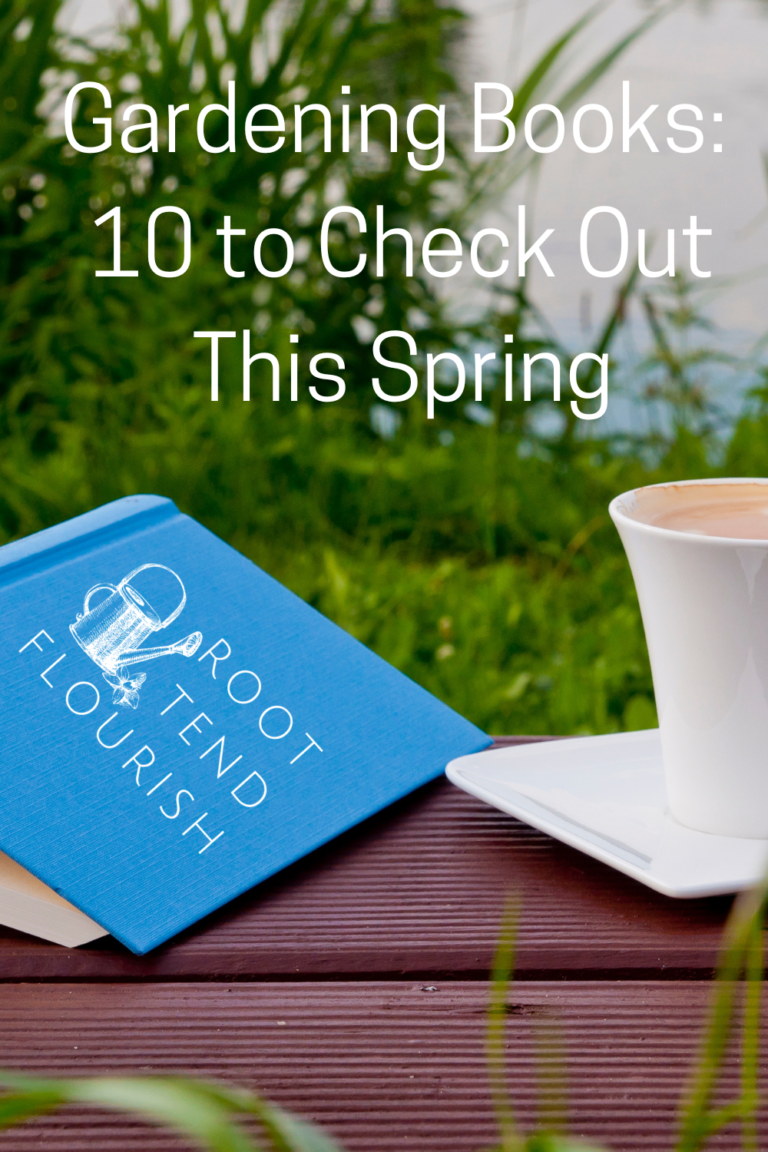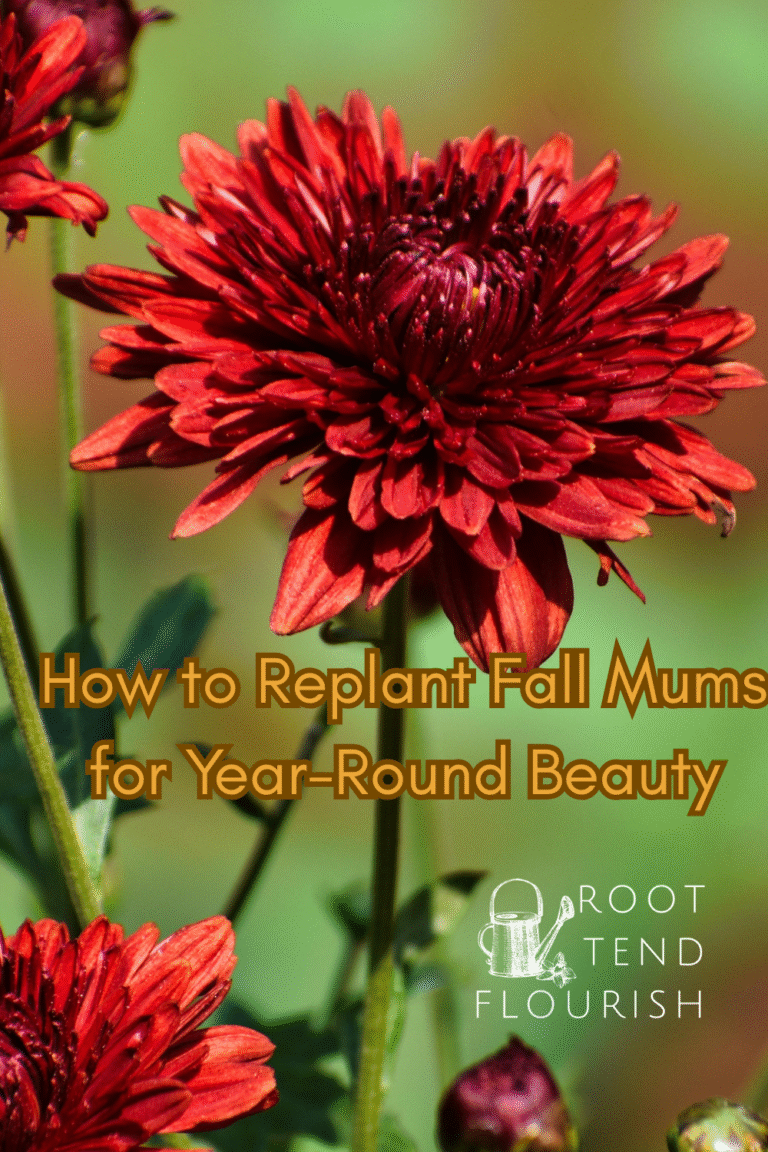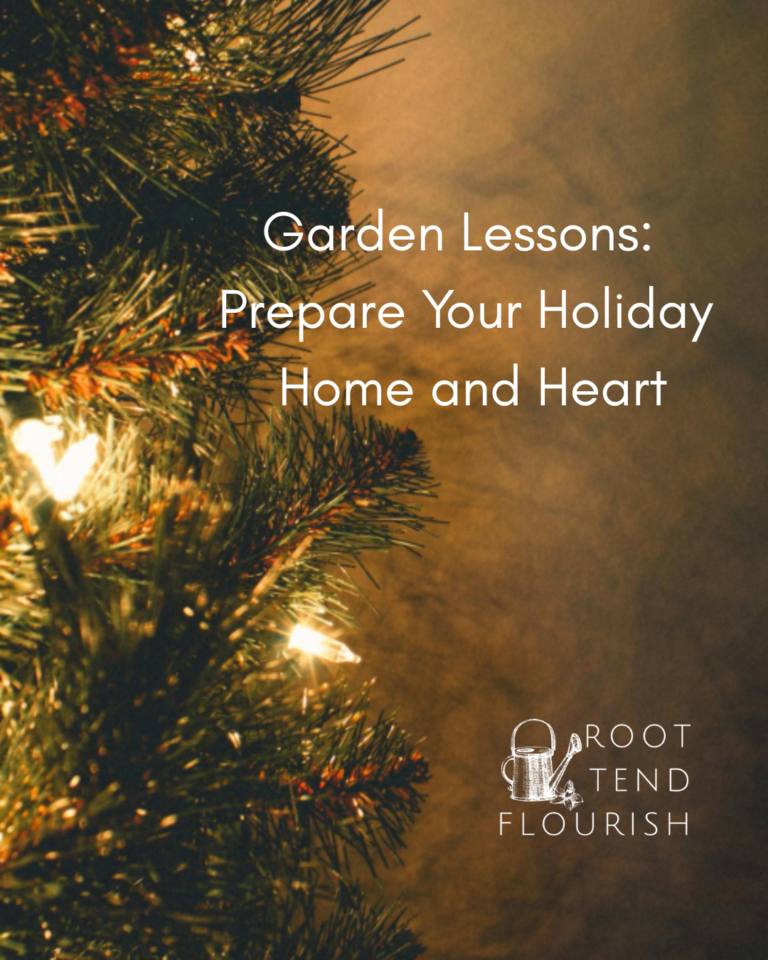Pruning For Life Part 2: How to Create Space for Flourishing
Last time, we talked about why pruning is important in the garden. Just like with plants, intentional and targeted pruning every so often can lead to a fuller and healthier life. We talked about pruning for a healthy life and the importance of noting any areas of our life that are struggling to thrive. Pruning for growth was another idea we explored. Identifying where your resources should go is an important step in pruning. Finally, we talked about how pruning for a good harvest often requires thinning out a tree. Simplifying our lives can lead to greater productivity in the long run. Today, we’ll discuss how pruning is important for:
- Developing a more desirable shape and form (now or in future growth)
- Creating space around the plant for other things to flourish
- Removing any hazardous branches that pose a safety issues

This post may contain affiliate links. Please read our disclosure policy.
Shape and Form: What do you want your life to consist of?
We’ve all seen them. Shrubs that are overgrown, oddly shaped or crowding out their neighbors in the planting bed (I swear- it’s always Yews planted in the 1950s). While growth isn’t necessarily a bad thing, when left unchecked it can result in an unpleasant shape and can have a negative effect on its surroundings. Just like in the garden, unchecked growth can lead to a life that’s out of balance.
By selectively pruning, you can start to steer your life towards the desired picture you wish it to be. While there are many things in life that are out of our control, we do have a certain level of choice over many things. We can choose what we eat and how often we move our body. How our time is used is another area of some control. We likely also have a say how many new commitments fill up our calendar.
When we realize that we have a certain level of agency over our lives, it can help shift our thinking. We stop spending our resources on things that don’t matter as much and direct them to things that do. If you want to start running, go to bed 15 minutes earlier this week and set out your running clothes the night before. When you wake up you’ll have an automatic reminder of why you’re up, albeit slightly groggy. It may seem like a small step but small steps add up.

Play the Long Game
If you find that your life is feeling completely overwhelming or out of wack, this will take time. Just like with a really overgrown shrub, this often has to happen in stages over multiple seasons; you’re playing the long game. You may need to make some big changes, such as your job, housing situation or budget adjustments.
At times, it will require you to have faith that the significant amount of pruning (and subsequent feelings of uncertainty) will ultimately result in a healthier life that prioritizes what matters most. But when you’re confident in the cuts you make, you can see in your mind’s eye what is possible. The current sacrifice of short-term fixes will be worth it for healthy, long-term growth. Consider, what your form your life is taking right now. What do your days consist of? For the areas where you do have a say, are you using your resources in the areas that matter most?
Space for Growth: What boundaries need to be established?
Now a note on crowding out neighbors. Some landscape plants are real thugs and will take over if not kept in check. At this point, you have to decide if it’s more important to prune the shrub to allow for the adjacent plants to take root. Or perhaps thug of a plant has run it’s course and needs to be removed. Only you can make that call and it requires thoughtful consideration of what your end goal is for the garden as a whole.
Similarly, there are things in life that can be a major drain on our resources if left unchecked. Common ones are unchecked use of money; time on social media, tv and video games; constant shopping, even if it’s a bargain (generally if you don’t need it, it’s not a bargain); comparison and excessive concern with what other people think; unhealthy thought patterns on reply in our mind, which we’re often unaware of; staying up late without much purpose instead of giving our bodies rest.
Consider where a hard boundary needs to be drawn to allow for cultivating a thriving life. Are there certain draws on your resources that need to be significantly limited or even eliminated to allow other things to take root?

Pruning and Safety: What can be done to avoid burnout?
Keeping trees and shrubs regularly pruned leads to a safer environment. Low-hanging branches can do damage to nearby structures and overgrown trees and shrubs can also do damage to the siding of a structure when there’s no space to allow for proper air flow.
Similarly, unchecked growth can lead to the b word. Burnout. It can happen to all of us and can come up all of a sudden. One minute we’re cruising along and the next we’re crying, short tempered and feeling like over life is falling apart. Typically, it’s just one or two areas that are overwhelming to us but it’s hard to discern that in the midst of burnout.

Regularly checking in with yourself to see how you’re doing is a good way to avoid burnout. Every so often, consider how the different areas of your life are feeling, growing or struggling. If you have a big change coming up, perhaps you need to prioritize rest and mental health walks even more. Healthy nourishing food may need to be a top priority if you’re getting over a long period of illness. If you’re at odds with your spouse, some regular time set aside for talking, listening and praying may be in order. Perhaps sports practices dominate your weekly schedule; maybe your child needs to take a season off. Take a few minutes and consider what areas have gotten a little too large and are bullying everything else. Think through what you overreaching branches you can prune back to restore some order and sanity to your life.
Remember, pruning in your life matters because….
How we live our days adds up to how we live our lives. And while that doesn’t need to add undue pressure to live the ideal life (a fallacy if there ever was one) it can make us slow down and ask some thoughtful questions on a regular basis. Just like our garden needs regular tending to flourish, so do our lives.
We need to tend our bodies, minds and souls. Relationships need attention to thrive. Our homes and other things we manage need our time and energy. But instead of tending frantically or not tending at all, we can make it an integrated part of our lives. Just as we think seasonally about our garden and the tasks required, we can do the same with our lives and how we use our resources.

At first it may require a pretty widespread pruning or significant trimming in certain areas. But over time, as we steer our lives in the direction we want them to go, there will be less and less massive pruning and more regular tweaking here and there. With those regular small inputs of care, we’ll start to see the most important areas of our life grow in a healthy and meaningful way. Just as we studied the vineyard reference from Isaiah 5 earlier, we are called to consider how we spend our days and what type of harvest our resources are producing.
“So teach us to number our days,
That we may cultivate and bring to You a heart of wisdom.”
Psalm 90:12 (AMP)
A Few Resources to Get You Started
- The Next Right Thing – Emily P. Freeman
- The Next Right Thing Guided Journal: A Decision-Making Companion – Emily P. Freeman
- Off the Clock: Feel Less Busy While Getting More Done- Laura Vanderkam
- The Ruthless Elimination of Hurry: How to Stay Emotionally Healthy and Spiritually Alive in the Chaos of the Modern World – John Mark Comer
- Habits of the Household: Practicing the Story of God in Everyday Family Rhythms – Justin Whitmel Earley
- The Lifegiving Home: Creating a Place of Belonging and Becoming – Sally Clarkson
- Simplicity Parenting: Using the Extraordinary Power of Less to Raise Calmer, Happier, and More Secure Kids – Kim John Payne
- Adorning the Dark: Thoughts on Community, Calling, and the Mystery of Making – Andrew Peterson
- Placemaker: Cultivating Places of Comfort, Beauty, and Peace – Christie Purifoy






